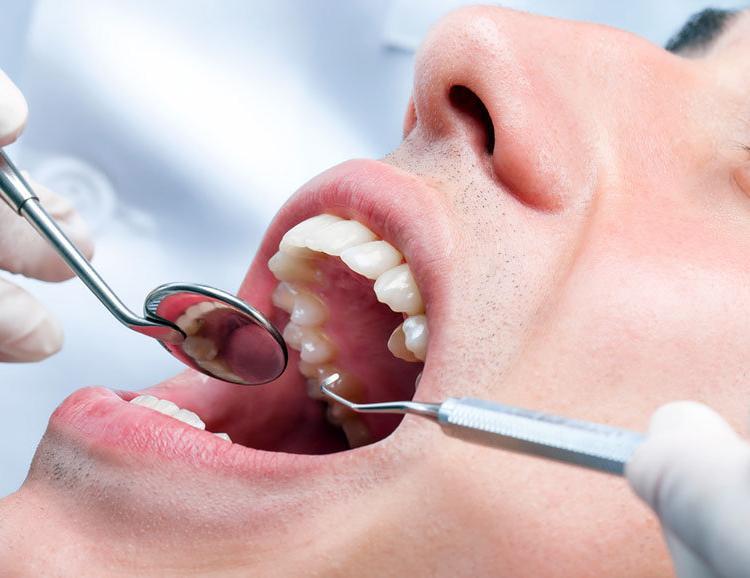In most cases, the removal of wisdom teeth is performed under local anesthesia, laughing gas (nitrous oxide/oxygen analgesia), or general anesthesia. We will discuss these options, along with information about unlikely surgical risks (i.e., sensory nerve damage, sinus complications) before the procedure. Of course, we know you have many questions about what to expect after you’ve had your wisdom teeth removed. Below, we clear up some of these common questions, although we are more than happy to discuss them in person. Feel free to call Vancouver Dental Specialty Clinic at 604-336-0958 during our hours of operation.

Do I Have to Leave Right Away?
Not at all. Once your procedure has been completed, you will rest under our supervision in the clinic until you are ready to be taken home by your accompanying adult. Upon discharge your postoperative kit will include postoperative instructions, a prescription for pain medication, antibiotics, and a follow-up appointment in one week. But don’t worry, if you have any questions after being discharged please do not hesitate to call.
Will There Be Bleeding After I Leave the Clinic?
Once wisdom teeth are removed, your gum is sutured. There will be some light bleeding after you leave the clinic. This is normal and expected in the first 24-hours. We will provide you with gauze, which will placed in your mouth for you to bite down on to hold in place and absorb the bleeding. You may want to sleep on an old pillow case when taking a nap or when going to bed on the first night to avoid ruining your favorite linens.
What Will I Feel Like After Wisdom Teeth Removal Surgery?
In the first 24-hours after surgery, you may experience some minor bleeding (as per above) and pain. That being said, each patient’s experience and reaction to surgery differs to some extent. Pain sensation can range from mild discomfort to more severe. A varying amount of swelling can be also expected over the 24 to 72-hour period following surgery. This swelling tends to peak on the second day, and should eventually resolve itself on the third day. You can limit the amount of swelling by applying an ice pack for the entire first day. This will reduce the amount of swelling experienced on day two. On the third day, your jaw muscles will feel stiff, and there may be difficulty in opening your mouth. You may apply moist heat to your face on the second and third day, which will allow your jaw muscles to relax more and open wider.
Be sure to limit your activities for up to six or seven days, and please remember to follow your post-operative instructions very closely. Doing so will provide you with a more comfortable postprocedure experience and will expedite your healing. Most patients feel like they are “over the hump” and on their way to recovery in 3 to 5 days.
Are There Any Problems After the Extraction of Wisdom Teeth?
As with any surgery or other medical procedure, there can be complications or unanticipated results. These can include delayed healing, infection and post-operative numbness or tingling in your lip, chin, or tongue. Some complications that patients undergoing Wisdom Tooth Extraction may experience include damage to the sensory nerve that supplies sensation to the lips and tongue, sinus communication, infections and dry sockets (addressed in greater detail below). To give yourself the best shot at avoiding any issues, be sure to follow your post-operative instructions to the tee. After your procedure, we will review these instructions with the adult who accompanied you to the clinic, and your oral surgeon will review relevant post-operative events with you and answer any questions you or your escort may have.
Complications That Can Follow Wisdom Teeth Extraction:
- Damage to Sensory Nerve - There is a nerve within the lower jaw bone that supplies feeling to the lower lip, chin, and tongue. It can be located near the roots of the lower wisdom teeth and may thus be susceptible to damage during the procedure. Having wisdom teeth removed between the ages of 12 and 18 greatly reduces the risk, given that the roots are shorter, with the nerve found further away from the teeth. As you become older, the risk of nerve damage increases. Now don’t worry, when local anesthesia wears off, you may experience a tingling or numbing sensation in the lower lip, chin, or tongue. This is expected and is usually temporary and will resolve gradually over a period of days, weeks, or maybe even months. On rare occasions however, it can result in a permanent alteration of sensation similar to having local anesthesia. Following up with our clinic will help assess recovery.
- Sinus Communication - The upper wisdom teeth are situated close to your sinuses, and their removal can result in an opening between your mouth and the sinus. Once again, if your wisdom teeth are removed at an early age, the root formation is minimal, and the risk is very low. However, if it does occur, it will usually close spontaneously. As a result, we may give you special instructions following your procedure. This may be to avoid blowing your nose for two or three days following the surgery. You can wipe your nose, but if you feel a sneeze coming on, do so with an open mouth into a tissue. Essentially, no pressure should be applied to the sinus area during recovery, as it may dislodge the healing blood clot. If you sense this condition occurring after the surgery, please contact our clinic. While
highly unlikely, an additional procedure may be necessary. - Dry Sockets - This is the most common problem patients experience following dental surgery. They arise due to premature loss of a blood clot in the empty tooth socket. This appears to occur with greater frequency in people who are regular smokers, or are taking birth control pills. While both jaws can be affected, they usually occur in the lower jaw on the third to fifth day. Dry sockets cause a deep, dull, continuous aching on the affected side(s). Patients may first notice the pain starting in the ear, and then radiating down towards the chin. Symptoms often begin in the middle of the night, with pain medication being ineffective. Treatment can involve changing one’s prescription. It may also be helpful to place a medicated dressing in the empty tooth socket, which will help reduce the pain while protecting the socket from food particles (which can aggravate the issue further). Pain may persist for 24-48 hours following treatment of dry sockets, and patents may need to change their dressing once or twice per day for five to seven day, although the dressings can be removed when you have been pain free for 2 or 3 days. Following removal of the dressing, an irrigation device may be provided to help to keep food particles from lodging in the extraction site.
- Infection - Occasionally, post-operative infections occur. This usually requires an clinic visit and examination. Often, a week long antibiotic prescription will take care
of the infection. However, if it persists, the infected area will have to be drained and cleaned.
Remember, when you’re a patient of Vancouver Dental Speciality Clinic you will have gained a support system that is here for you well after your oral and gum surgery has concluded. If you
have any questions whatsoever, feel free to call us at 604-336-0958.



